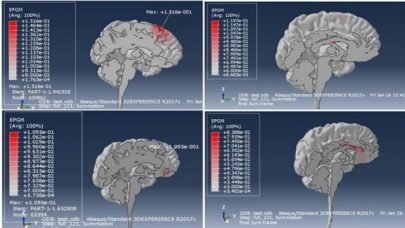
Kubernetes and HPC Applications in Hybrid Cloud Environments – Part II
March 19, 2020
With the rise of cloud services, CIOs are recognizing that applications, middleware, and infrastructure running in various compute environments need a common management and operating model. Maintaining different application and middleware stacks on-premises and in cloud environments, by possibly using different specialized infrastructure and application... Read more…

Democratization of HPC Part 4: Deep Learning for Fluid Flow Prediction in the Cloud
November 1, 2018
This is the fourth and final article demonstrating the growing acceptance of high-performance computing (HPC) in new user communities and application areas. In Read more…

Democratization of HPC Part 3: Ninth Graders Tap HPC in the Cloud to Design Flying Boats
October 18, 2018
This is the third in a series of articles demonstrating the growing acceptance of high-performance computing (HPC) in new user communities and application areas Read more…

Democratization of HPC Part 2: HPC in Personalized Non-invasive Clinical Treatment of Schizophrenia and Parkinson’s
October 4, 2018
This is the second in a series of articles demonstrating the growing acceptance of high-performance computing (HPC) in new user communities and application area Read more…

Dassault, NIMHANS, and UberCloud Foster Innovative Schizophrenia Treatment
March 29, 2018
In a series of challenging high performance computing applications in the life sciences, UberCloud’s HPC containers have been packaged recently with several scientific workflows and application data to simulate complex phenomena in human’s heart and brain. Read more…

Stanford University and UberCloud Achieve Breakthrough in Living Heart Simulations
September 21, 2017
Cardiac arrhythmia can be an undesirable and potentially lethal side effect of drugs. During this condition, the electrical activity of the heart turns chaotic, Read more…

Towards Ubiquitous HPC — Passing HPC into the hands of every engineer and scientist
January 7, 2016
Countless case studies demonstrate impressively the importance of HPC for engineering and scientific insight, product innovation, and market competitiveness. Bu Read more…

UberCloud Marketplace for HPC as a Service Goes Live
January 29, 2014
UberCloud is the online community and marketplace where engineers and scientists can discover, try and buy the computing power and expertise on demand they need Read more…

- Click Here for More Headlines

Whitepaper
Transforming Industrial and Automotive Manufacturing
In this era, expansion in digital infrastructure capacity is inevitable. Parallel to this, climate change consciousness is also rising, making sustainability a mandatory part of the organization’s functioning. As computing workloads such as AI and HPC continue to surge, so does the energy consumption, posing environmental woes. IT departments within organizations have a crucial role in combating this challenge. They can significantly drive sustainable practices by influencing newer technologies and process adoption that aid in mitigating the effects of climate change.
While buying more sustainable IT solutions is an option, partnering with IT solutions providers, such and Lenovo and Intel, who are committed to sustainability and aiding customers in executing sustainability strategies is likely to be more impactful.
Learn how Lenovo and Intel, through their partnership, are strongly positioned to address this need with their innovations driving energy efficiency and environmental stewardship.
Download Now
Sponsored by Lenovo
Whitepaper
How Direct Liquid Cooling Improves Data Center Energy Efficiency
Data centers are experiencing increasing power consumption, space constraints and cooling demands due to the unprecedented computing power required by today’s chips and servers. HVAC cooling systems consume approximately 40% of a data center’s electricity. These systems traditionally use air conditioning, air handling and fans to cool the data center facility and IT equipment, ultimately resulting in high energy consumption and high carbon emissions. Data centers are moving to direct liquid cooled (DLC) systems to improve cooling efficiency thus lowering their PUE, operating expenses (OPEX) and carbon footprint.
This paper describes how CoolIT Systems (CoolIT) meets the need for improved energy efficiency in data centers and includes case studies that show how CoolIT’s DLC solutions improve energy efficiency, increase rack density, lower OPEX, and enable sustainability programs. CoolIT is the global market and innovation leader in scalable DLC solutions for the world’s most demanding computing environments. CoolIT’s end-to-end solutions meet the rising demand in cooling and the rising demand for energy efficiency.
Download Now
Sponsored by CoolIT
Advanced Scale Career Development & Workforce Enhancement Center
Featured Advanced Scale Jobs:
HPCwire Resource Library
HPCwire Product Showcase
© 2024 HPCwire. All Rights Reserved. A Tabor Communications Publication
HPCwire is a registered trademark of Tabor Communications, Inc. Use of this site is governed by our Terms of Use and Privacy Policy.
Reproduction in whole or in part in any form or medium without express written permission of Tabor Communications, Inc. is prohibited.
























